
Gin is a distilled alcoholic drink that derives its predominant flavour from juniper berries. Gin emerged in England in various forms by the 17th century, after the introduction of “Genever”, a Dutch and Belgian liquor made from juniper berries, originally used as medicine.
Although we often associate Gin production and consumption with England, gin was technically invented in the Netherlands. In the 16th century, having known about the medicinal properties and effects of the juniper berry, Dutch doctor Franciscus Sylvius de la Boe distilled juniper schnapps (also known as Genever) to use in his medical practice.
The drink was popular amongst soldiers in the 80 Year’s War, helping to spark bravery on the battlefield. Eventually, Genever spread to other areas of Europe but was particularly favoured by the English, where the drink evolved into the gin we know and love today.
In England, gin’s popularity took off after the Dutch-born William of Orange (King William III) succeeded the deposed King James II. With James fleeing to catholic France, a new protestant alliance between the Netherlands and England resulted in a blockade against France. This included banning all imports of French brandy, but Genever was still allowed to be imported from the Netherlands.
So, when the British Parliament passed a bill allowing unlicensed gin production, a new market for distilled spirits using poor-quality grain unfit for beer production suddenly erupted. Thousands of gin shops and distributing companies sprung up throughout England, this period is commonly known as ‘The Gin Craze’. Gin’s distinct botanical flavour makes it perfect for mixing, allowing gin to feature in countless classic and reimagined cocktail recipes.
Five main styles of Gin have developed over the centuries: Genever, Plymouth, Old Tom, London Dry, and New Western.
Genever, also known as Jenever or Dutch Gin, Genever most closely resembles the style of gin produced in seventeenth-century Holland and is distilled from malted grain mash similar to that used for whisky.
Plymouth Gin, unlike ‘London’ Dry Gin, refers to the location of production, as opposed to the style of gin. By law, Plymouth Gin must be produced within the city walls of Plymouth. Plymouth Gin has a strong naval heritage and has traditionally been popular with sailors.
Old Tom Gin refers to a style of slightly sweetened gins that were popular in eighteenth-century England. In later years, the sugar syrup would occasionally be flavoured with orange flower water.
London Dry Gin is the most commonly consumed gin in Australia and was first created in the nineteenth century. It should be noted that ‘London’ relates to the style of gin and not the geographical location of the distillery, and is the most popular gin bought and sold today.
New Western or New Age Gin is the new wave of gins being released that focus less on the traditional juniper botanicals and more on unique or regionally-specific botanicals. Some US producers are attempting to have this recognised formally.
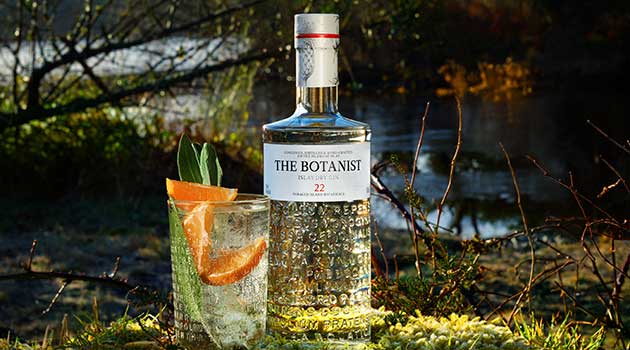
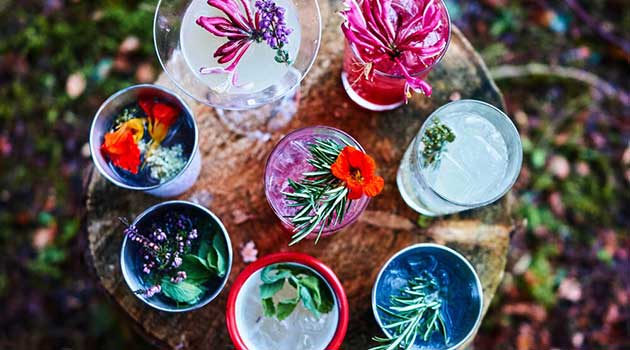
There are three main types of Gin:
Compound Gin which is a macerated gin with no second distillation. Compound gins are produced by steeping botanicals in ethyl alcohol only, without redistilling. Both natural and artificial flavouring may be used, with no restrictions on additives such as colours and sweeteners.
Distilled Gin is re-distilled with botanicals after maceration. Distilled gins are been produced by steeping botanicals in ethyl alcohol and redistilling the resulting macerate, which can result in a sweeter gin flavour.
London Dry which is the same as distilled Gin but less sweet. This is a variety of distilled gin made in a traditional still by re-distilling ethyl alcohol in the presence of all-natural flavourings.
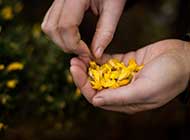
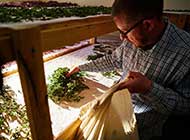
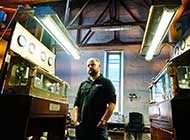

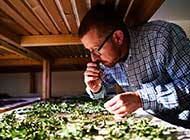
The Finsbury Distillery was founded in London by Joseph Bishop back in 1740. Today, as then, Finsbury is distilled using a unique mix of botanicals including juniper berries, exotic fruits, and a host of herbs and spices according to a complex method handed down from the 18th century. Truly, representative of the London Dry style preferred both internationally and in Great Britain, it is a particularly fine and restrained gin. Produced at the Langley Distillery near Birmingham, Finsbury draws on the pedigree of one of the oldest unbroken family involvements in gin distilling. Boasting a unique family recipe of esoteric botanicals with which this great London gin is created, Finsbury represents the accrued knowledge of 300 years’ experience.
The Botanist Islay Dry Gin is a progressive exploration of the botanical heritage of the Isle of Islay in Scotland. 22 hand-foraged local botanicals delicately combined with nine berries, barks, seeds, and peels during an achingly slow distillation.
For this, The Botanist gin uses nine of the classic gin aromatics and augments these with a heady harvest of 22 local botanicals, hand-picked by an expert foraging team from the windswept hills, peat bogs, and Atlantic shores of the Hebridean island of Islay. The result: a highly distinctive, complex, floral gin with an outstanding finish and impeccable provenance. In an age of re-badged industrial gins, The Botanist gin stands out as a truly artisanal, small-batch, hand-crafted labour of love and distiller’s art.
Martin Miller’s Original Gin is a pot-distilled premium gin containing 10 botanicals, cucumber distillate, and Icelandic Spring-water. Two separate distillations are created and combined together to impart a unique balance of citrus and juniper, Martin Millers is 40% ABV. The Martin Miller’s Original Gin is distilled in England using traditional methods, and is a key pioneer of the Gin Renaissance in the 1990s, impressing critics and journalists alike.
Martin Miller’s Westbourne Gin was launched in 2003 to great acclaim, winning multiple competitive awards including World’s Best Gin. Martin Miller’s Westbourne Gin was designed to lend an “old-school” authenticity to classic cocktails, and allowed mixologists to create more complex, full-bodied cocktails.
Distilled Gin Re-distilled with botanicals after maceration.
London Dry Same as distilled Gin but less sweet.
New Western or New Age Gin are new wave of gins being that focus less on the traditional juniper botanicals and more on unique or regionally-specific botanicals.
Gin emerged in England during the 17th century, after the introduction of “Genever”, a Dutch and Belgian spirit made from juniper berries, originally used as medicine.

Wild. Foraged. Distilled.
From the Progressive Hebridean Whisky Distillery – Bruichladdich, comes The Botanist – a gin of layered complexity, an exploration of the botanical heritage of the Isle of Islay. Bruichladdich is driven by people, people who challenge the boundaries, who love to explore. These Distillers explored the boundaries beyond whisky to create The Botanist, the first and only Islay Dry Gin.
Learn more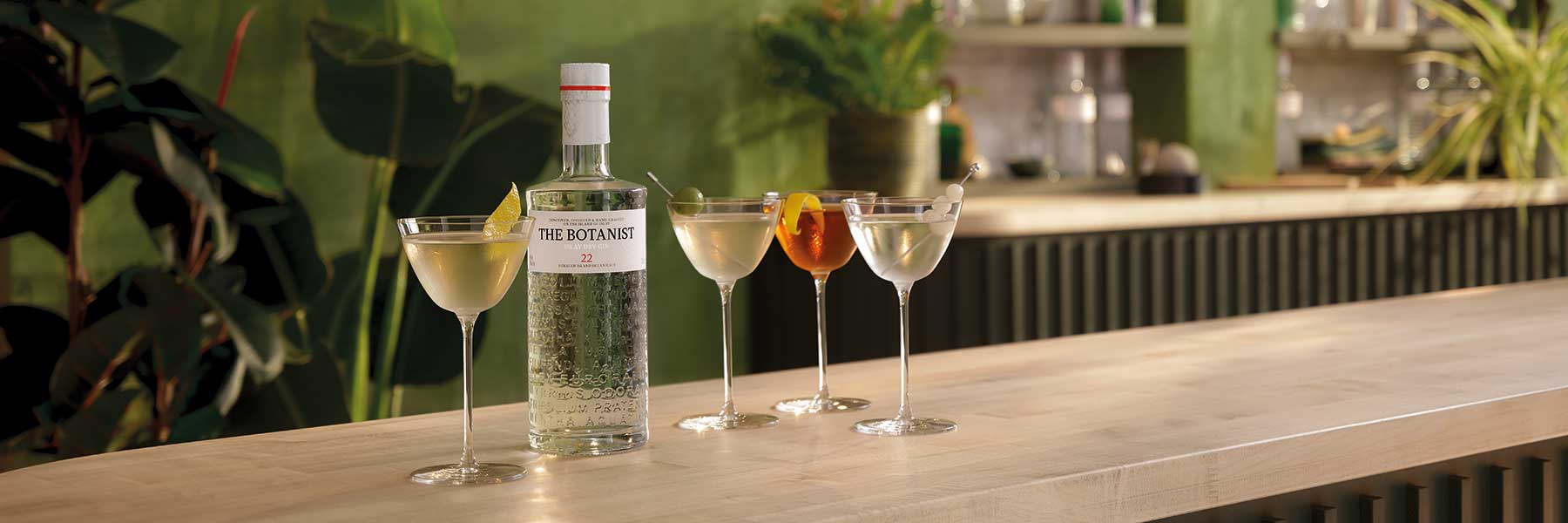

Finsbury Platinum is a London Dry Gin still made to a 250-year-old secret recipe at the distillery founded in London by Joseph Bishop in 1740. It is distilled in elegant John Dore copper pot stills using a unique mix of botanicals that includes exotic fruits and a host of herbs and spices.The distillation method has been handed down since the 18th century and Finsbury is a wonderful representation of the London Dry style. It is a restrained, particularly refined style of gin and adapts well to highballs or cocktails.
Learn more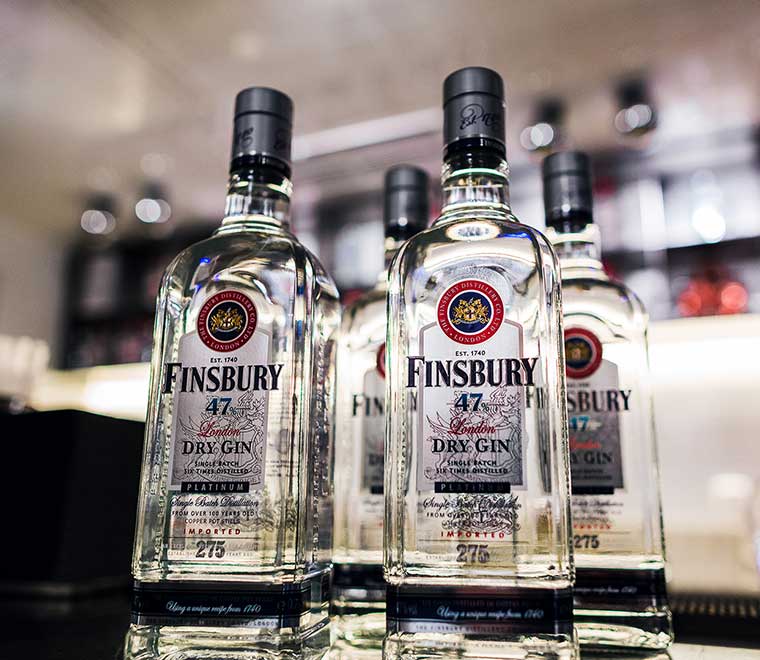

Martin Miller’s Gin is made according to the traditional “London dry gin” style, but pioneering the process of two separate pot distillations, one for juniper and botanical herbal elements, and a second separate distillation from the citrus elements, orange peel, lime, and lemon giving the gin a unique balance of citrus and juniper.
This unconventional English distillation of the finest botanicals is blended with the purest Icelandic water.
Learn more
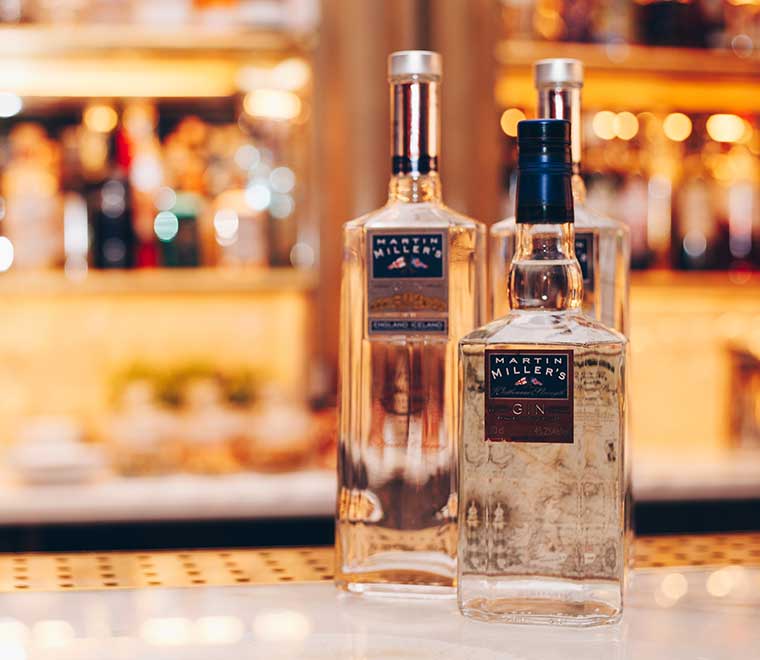



It’s an exciting time for Spirits Platform. We only email you when we’ve got something exciting to share.
Sign up nowYou must be of legal drinking age to enter this website. This website uses cookies.
By entering our website, you agree to our Terms and Conditions and Privacy Policy.
You must be of legal drinking age to enter this website.